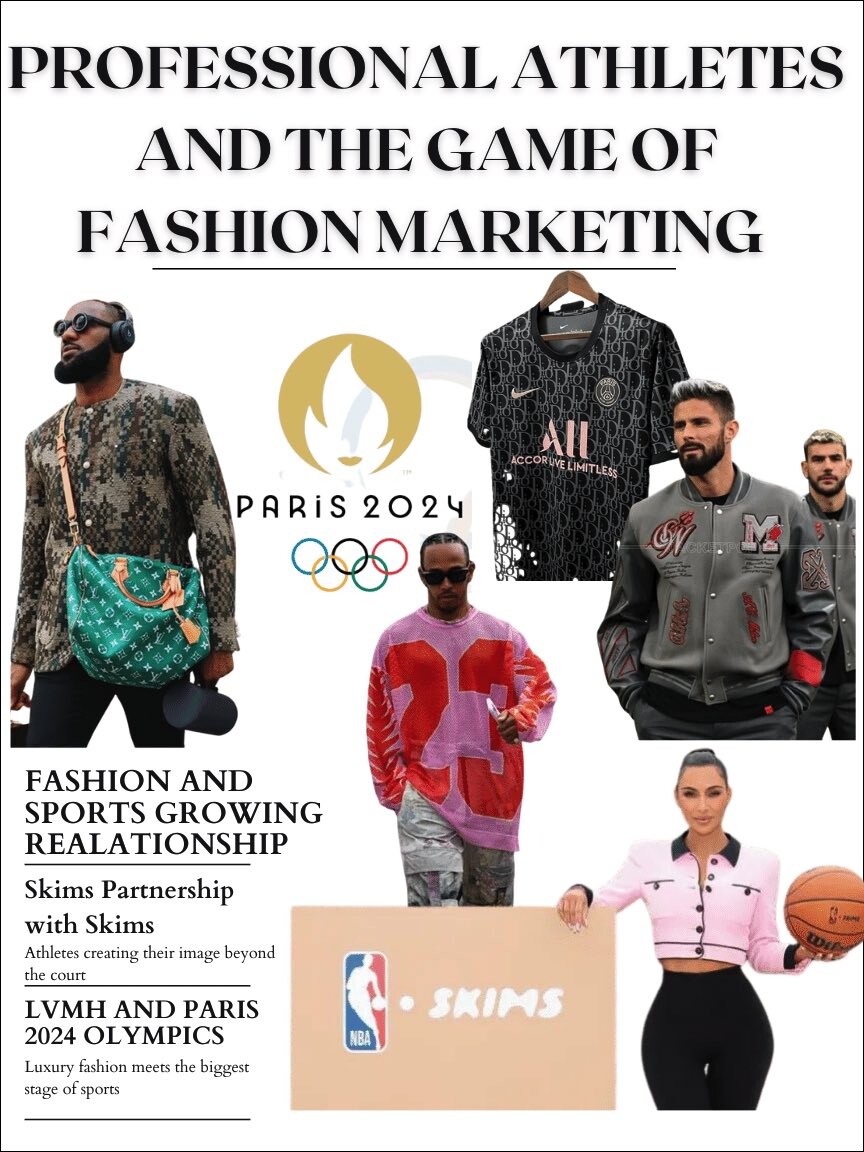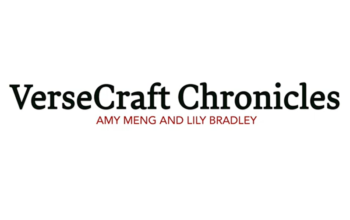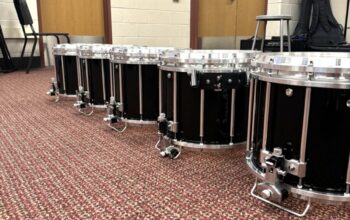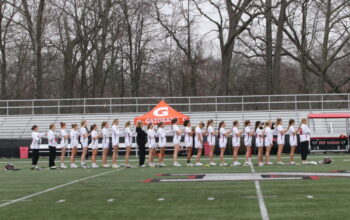Bridget Flatow, Arts and Tech Editor
@BFlatowCourant
The sports industry has evolved into a bustling marketplace for fashion brands seeking to harness its influential power. With the global sports-sponsorship market expected to grow substantially from $63.1 billion in 2021 to $109.1 billion by 2030, this avenue presents an enormous opportunity for brands to connect with diverse fan bases worldwide. The projected growth of the sports-sponsorship market highlights the shift in the cultural narrative, where sports have become pivotal in shaping consumer engagement and brand visibility.
A number of sports, including golf and tennis, have long partnered with luxury fashion brands. However social media and the rise of influencers have brought fashion-sports partnerships far beyond the traditional “luxury sports” and to sports with more mass appeal.
LVMH comprises of more than 72 luxury brands including, Tiffany & Co., Christian Dior, Fendi, Sephora and more. LVMH’s collaboration with the Paris 2024 Olympic and Paralympic Games stands as a testament to this evolving relationship. LVMH’s brands, including Louis Vuitton, Dior, and Berluti, are providing uniforms for select teams and even designing the medals, while also sponsoring accomplished athletes.
The Olympics, an elite and exclusive sporting event, align with the brands under LVMH’s umbrella. The Olympics offer these brands a new consumer market while still maintaining their elite brand identity. Sports now offer substantial commercial value in the fashion industry.
Fashion brands are embracing diverse avenues within sports marketing beyond traditional sponsorships. They are now partnering with athletes such as Léon Marchand and Mélanie de Jesus dos Santos to create exclusive clothing lines, dressing them for their entrance into arenas which are captured and shared on social media and even designing clothing for their avatars in video games. This approach enables brands to tap into niche areas and audiences, fostering a more natural and impactful connection with their target audiences.
The alignment between fashion and sports isn’t just about branding; it’s about creating narratives that resonate emotionally and aspirationally with consumers. Athletes, once seen as mere sports icons, have now become style influencers. LeBron James’s collaboration with Louis Vuitton exemplifies this as he arrived at a Lakers vs. Nuggets game at Denver’s Ball Arena wearing a full Louis Vuitton outfit. As LeBron’s influence continues to extend beyond the basketball court, the line between athletic talent and high fashion becomes blurred. With the announcement of a multi-year deal between Louis Vuitton and the NBA, the NBA tunnel is becoming one of menswear’s most influential runways.
Fashion sponsorships are not limited to basketball. Dior signed a two-year partnership in 2021 to act as the “official outfitter” for soccer team, Paris Saint-Germain, marking the first time Dior had partnered with a sports organization.
Although not a luxury brand, American Eagle has tapped into this sports market after legislation was passed allowing college athletes to work with brands. American Eagle created the #AEAthleticDept program and signed multiple college athletes, including Tank Bigsby, Olivia Dunne, Sevyn Banks and Kedon Slovis. With this campaign American Eagle has been able to maintain their brand identity, while further connecting with their Gen Z audience and gaining new consumers in the college sports market.
Additionally, brands like Skims have recognized the potential of partnering with major sports leagues like the NBA. Skims’ collaboration as the official underwear partner of the NBA, directly after the release of their menswear line, signifies a strategic move to diversify its consumer base. This partnership extends the brand’s reach beyond its traditional market, maintaining brand identity while also resonating with diverse demographics within the league’s fanbase.
These collaborations highlight a shift in marketing strategies, as fashion brands leverage the aspirational appeal, cultural influence, and global reach of sports to create impactful campaigns.
The intertwining of sports and fashion is not just a trend; it’s a shift in consumer engagement. The strategic partnerships between luxury fashion houses, sports events, and influential athletes exemplify the future of marketing. As this dynamic relationship continues to evolve, we can anticipate even more partnerships between sports and fashion.




